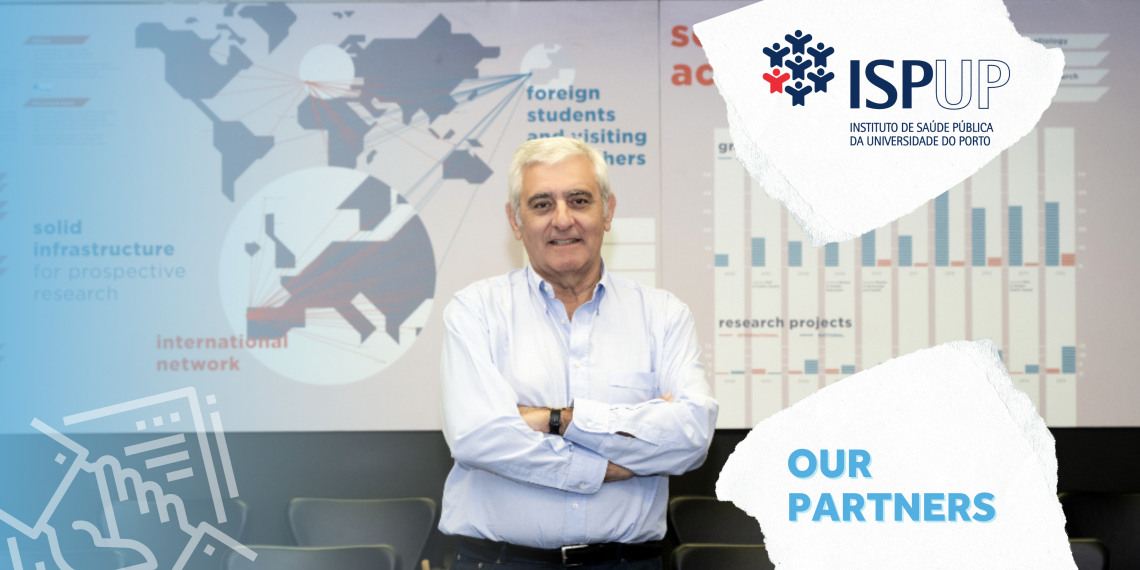The Institute of Public Health of the University of Porto (ISPUP) is a private non-profit association, with a public utility status, created in 2006, as part of the University of Porto. ISPUP’s mission is to contribute to the development, application, and dissemination of new knowledge in the field of public health, to improve and safeguard the health of the population.
In the month we celebrate the World Health Day (April 7), we talked to Henrique Barros, President of ISPUP.
Name of the organisation: ISPUP
Business area: Public Health
Name: Henrique Barros
Position in the organisation: President
INESC TEC centre with which organisation collaborated: Centre for Human-Centered Computing and Information Science (HumanISE), Artificial Intelligence and Decision Support Labratory (LIAAD) and High-Assurance Software Laboratory (HASLab)
Project name: SI.VIDA, Diaries of a Pandemic, RECAP/Geração 21 and StayAway Covid
Project managers at INESC TEC: José Correia, Artur Rocha, Rui Camacho and Rui Oliveira
What is the connection between ISPUP and INESC TEC?
The two Institutes have been collaborating for more than 15 years, namely in the development of ground-breaking solutions for the retrieval and processing of relevant health data, from a clinical management perspective – as was the case with HIV infections, or research and linking records, as happens with the population cohorts we have been monitoring.
The two institutions have been working together on the RECAP/Geração 21 project, as well as on other public health mobilising solutions. How do you perceive the impact of this collaboration on society?
It is a very inspiring path, because it connects research, and addressing singular questions, with solutions that can change the understanding of health-related issues and improve people’s lives.
What are the main results of this collaboration?
The creation of a platform that will be of great relevance in the future of multiple international endeavours using highly sensitive data, whose transfer presents problems in terms of individual protections. In fact, in-depth work on the ethical and legal issues of registry linking, the formulation of processes that are more friendly to participants in longitudinal studies (to obtain information dispersed across multiple bases with a common identifier), and the comparison of international frameworks for action on data protection were relevant innovative contributions. Likewise, we collaborated in the use of machine learning as a tool for data analysis and understanding the determinants of participation in healthcare studies. In addition, we demonstrated the relevance and feasibility of creating Internet-supported cohort studies.
How do you rate your experience with INESC TEC?
Excellent! Not only for the Institute’s understanding of the nature of the health-related problems we face, but also due to the ability to organise a kind of common intelligence in the design of solutions to health research problems.
What do you value the most in this collaboration?
The availability and willingness to identify innovation and utility factors, as seen in the development of the StayAway Covid app.
What can we expect from ISPUP in the upcoming years?
The deepening of our joint work and leadership in European projects.




 News, current topics, curiosities and so much more about INESC TEC and its community!
News, current topics, curiosities and so much more about INESC TEC and its community!